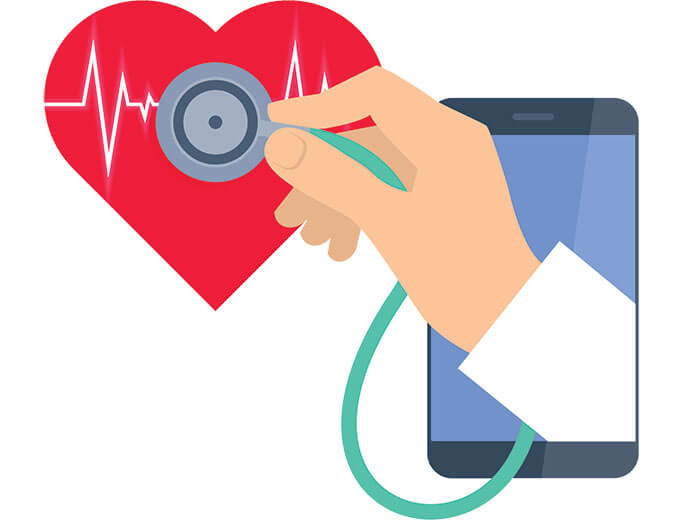
Mobile’s influence on behavioural change
One reason is that mobile devices have the ability to provide personalised and instant responses, which are crucial in assisting behavioural change. In healthcare, behavioural change is the key component to preventing and managing chronic disease.This probably explains the flourishing of health-related apps. According to The Economist, there are now more than 165,000 health-related apps accessible as of March 2016.While most of them fall into the category of “wellness”, which help people to monitor their diet, exercise and stress levels, there are also further health apps that have been created for medical purposes, and can even be used by physicians as an equipment supplement.A good example is the smartphone app iECG which could even replace the traditional ECG machine to detect atrial fibrillation, responsible for one third of all strokes in Australia.
Flexibility of delivery
Another advantage of mobile devices and telehealth technology is their flexibility in delivery, which enable patients to stay at home while receiving the same level of care as they would in a healthcare facility.According to the Primary Health Care Advisory Group Report, there is a potentially preventable hospitalisation for chronic disease in Australia every 2 minutes. With services like after-hour teletriage, these hospitalisations could be prevented.
Text messages can double the odds of medication adherence
SMS can also be of great help in managing chronic conditions. Researchers at The George Institute for Global Health in Sydney conducted a clinical trial which evaluated how an intervention by text message could be used to increase medication adherence in adults with chronic diseases.Applications ranged from a text being sent to patients if they failed to open a medication dispenser to personalised messages regarding specific medicines and dosages. The conclusion was that SMS proved to be an essential tool in disease prevention, monitoring and management.Telehealth encompasses preventative, promotional and curative aspects of healthcare, so it’s important for all providers to continue to explore the potential and build on their experiences.We’re working with several providers in this space and are excited to be involved with initiatives that make such a difference to the cost and effectiveness of medical care.
Quick guide to telehealth terminology
Telehealth: the provision of healthcare remotely by means of telecommunications technology.m-health / mHealth: the use of mobile phones and other wireless technology in medical care.e-health / eHealth: healthcare practice supported by electronic processes and communication. Sometimes more narrowly defined as healthcare practice using the internet.Digital health: electronically connecting up the points of care so that health information can be shared securely (source).Telemedicine: the use of telecommunication and information technology to provide clinical healthcare from a distance.Teletriage: a medical professional speaks by telephone to a patient, assesses the symptoms, and guides them to appropriate care.
